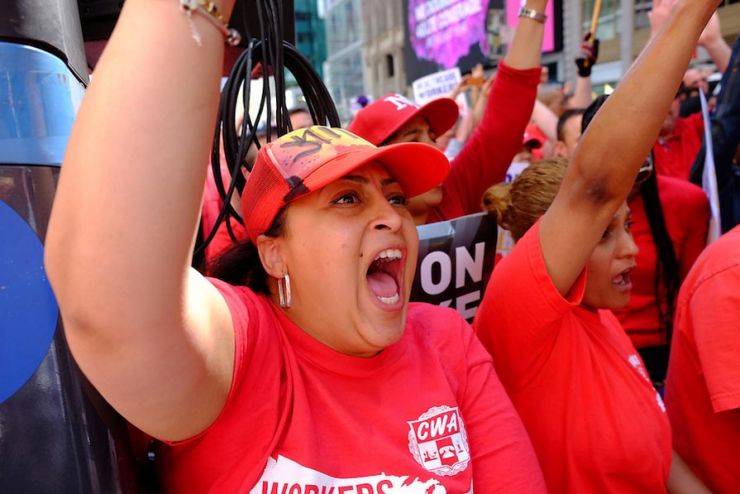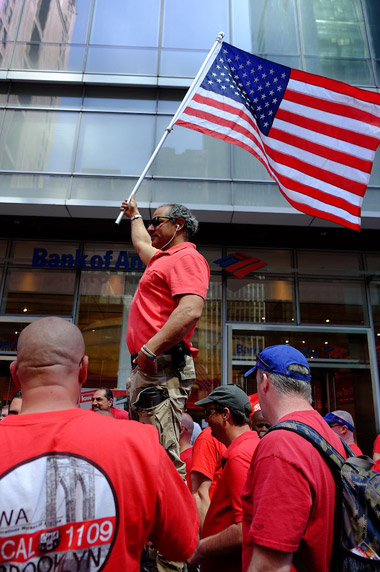Baltimore City Joins The Fight For $15 olat616
June 15, 2016

1199ers joined thousands of striking Verizon workers represented by the Communications Workers of America and the International Brotherhood of Electrical Workers for a rally in New York City’s Times Square April 18 to show their support for them and the nearly 40,000 who went on strike against the telecommunications giant in mid-April. In order to bump up its bottom line, Verizon wanted to cut workers’ health benefits and more easily outsource and offshore jobs. Workers said “No Way!” and held strong at picket lines around the northeast, where they were joined by many union sisters and brothers. On May 27, an agreement was announced that preserves good jobs, improves workers’ standards — and in a first — provides provisions for organizing Verizon’s Wireless retail workers.

Baltimore City became the newest city to take on the Fight For $15 with the April 18 introduction of a bill to raise the minimum wage for workers in the city to $15 by 2020. A $15 minimum wage by 2020 could raise pay for nearly 100,000 workers in Baltimore City, approximately 20 percent of the workforce.
The bill proposes gradually increasing the minimum wage in Baltimore City to $15 by July 2020 and indexing it after that so it rises with increases in the cost of living. It also raises pay for tipped workers, who currently earn $3.63 per hour, to $15 by July 2025 and eliminates the tipped wage thereafter. Also included in the legislation are provisions to eliminate current exemptions to the minimum wage law as well as to strengthen enforcement and anti-retaliation protections for workers.
“I’m proud that 1199 is taking on this fight. A $15 minimum wage will help me, my family and so many others in Baltimore City. It will enable me to pay my bills and take care of my children. People need to make more money to be able to maintain their families,” said Susan Clark, a GNA at Future Care Coldspring in Baltimore City. “Even though I make close to $15 per hour, higher wages mean my employer will have to give us a raise to make our jobs competitive. People wonder why you’ve got folks selling drugs and committing crimes. That’s what happens when people can’t earn enough money. We’ve still got to eat and pay our bills.”
Approximately 24 percent of Baltimore residents currently have an income below the poverty level. More than one-fifth of city households receive food stamps.

